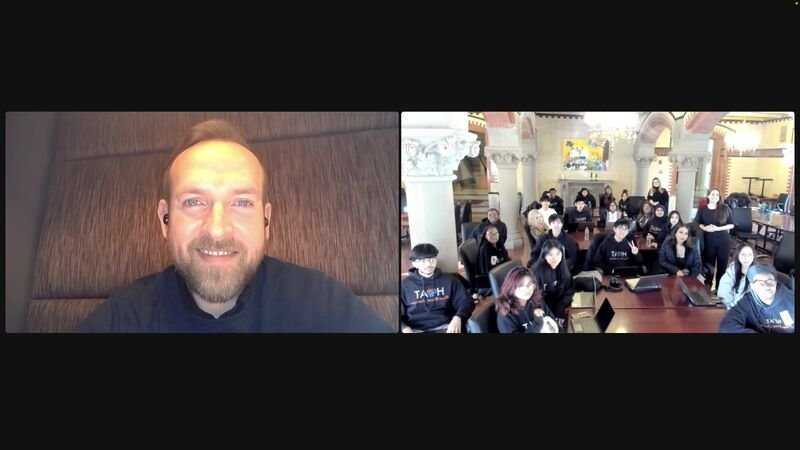What do students think of AI detection software?
They had a chance to ask some spicy questions directly to one provider at our last NYC DOE workshop.
As part of our yearlong series with the NYC DOE's HE3AT program, we are working with South Brooklyn high schoolers as they build their own policies for the ethical adoption of AI in their schools.
Today they had a chance to meet with Lee Gaul from Copyleaks, a popular plagiarism and AI content detector (thanks Lee!).
After Lee shared how Copyleaks technology works, how enterprise clients and schools are using the technology, and his thoughts about the future of AI detection, students had a chance to ask some spicy questions.
❓Should schools use AI detection tools if they aren't always accurate?
❓Is it hypocritical if teachers can use AI grading tools and students are banned from using AI?
❓How will AI evolve in it's ability to model human writing and how will that impact AI detection?
❓How can we ensure that AI development augments human ability and does not cause us harm?
❓AI development is moving so quickly, so how can teachers and students keep up?
Lee did a great job fielding these questions and shared his insights on the importance of a “human in the loop,” especially when it comes to suspecting inappropriate use of AI in a student's schoolwork.
While we do not advocate for the use of AI detectors in schools, today was a testament to the importance of open dialogue, intellectual curiosity, critical thinking, and the engagement of diverse stakeholders in the development of AI literacy and responsible use.
If you haven't already, here's another call to action in the importance of involving students and young people in these discussions! These opportunities allow them to be meaningful participants in shaping their education and future and it will be the best conversation you have on the topic.

